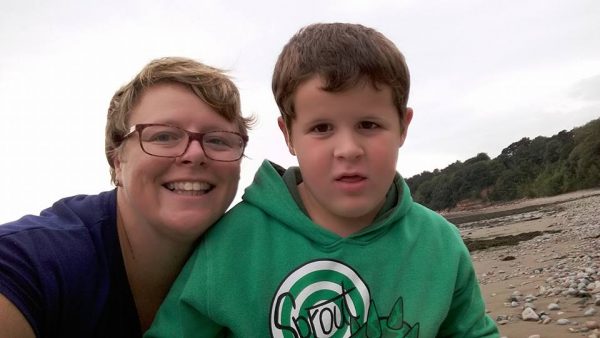Too Much Information: World Autism Awareness Week
30 March 2017
Background
This week (March 27th – 2nd April 2017) is World Autism Awareness Week. Claire Johnson (Head of Quality Assurance and Regulatory Affairs– Centre for Trials Research at Cardiff University) gave a very personal presentation to Centre for Trials Research colleagues on autism based on the Too Much Information film by the National Autistic Society. The film aims to help people gain a deeper understanding of autism, focusing on the fact that for some autistic people the world can feel like a terrifying place with overwhelming sights, sounds and feelings.
Autism is part of daily life for around 700,000 people in the UK, it is a lifelong developmental disability affecting girls and boys that impacts how they see the world and interact with others. The way in which autism affects each person is very individual.
Autism as a sphere
Traditionally there has been a “high functioning/ low functioning” linear way of describing the autistic spectrum, but this way of thinking is changing, as Claire explained, autism is now being viewed as a sphere, with every individual’s skills and challenges mixed together inside it. Thinking of it this way makes sense, it means that just because an autistic person has challenges it doesn’t mean that they don’t also have strengths – the spectrum of autism is individual and variable and can move around within the sphere.
As part of the presentation we were asked to reflect on how we communicate and think about autism. Could we be more aware of the day to day difficulties faced by a person with autism? How could we change our own behaviours, routines or environments to help? How could we help the parent whose child is having a meltdown in the middle of the shop? Could we give the person with autism a little more time to process the information? Could we stop and think about the perspective of the person with autism a little more?
Autistic people and their families face very real difficulties. Claire outlined the importance of accepting these difficulties, but also equally important is that we become more able to recognise and support individuals and their families without promoting the exclusion or stigmatisation of autistic people.
SenITA study
The Centre for Trials Research is currently in the set up phase of the SenITA study, a pragmatic randomised controlled trial of sensory integration therapy versus usual care for sensory processing difficulties in autism spectrum disorder in children, and its impact on behavioural difficulties, adaptive skills and socialisation.
Further information
In her spare time Claire can be found volunteering for the Cardiff and Vale Branch of The National Autistic Society. If you are interested in learning more about autism or you are interested in fundraising for the NAS Cardiff and Vale Branch you can contact nascardiff@nas.org.uk.
The National Autistic Society Cardiff and the Vale Branch website provides useful help and resources.
Local events and other useful information/links can be found on the NAS Cardiff and the Vale Branch Facebook page.
“Autism does not define a person, but it can explain some behaviours” – Claire Johnson
- December 2025
- October 2025
- June 2025
- May 2025
- April 2025
- March 2025
- February 2025
- December 2024
- November 2024
- October 2024
- September 2024
- July 2024
- June 2024
- May 2024
- April 2024
- March 2024
- December 2023
- November 2023
- September 2023
- July 2023
- June 2023
- April 2023
- March 2023
- February 2023
- December 2022
- November 2022
- October 2022
- September 2022
- August 2022
- July 2022
- June 2022
- May 2022
- April 2022
- March 2022
- February 2022
- January 2022
- November 2021
- September 2021
- July 2021
- June 2021
- May 2021
- March 2021
- February 2021
- December 2020
- November 2020
- September 2020
- August 2020
- July 2020
- January 2020
- December 2019
- October 2019
- September 2019
- July 2019
- June 2019
- May 2019
- April 2019
- February 2019
- December 2018
- November 2018
- October 2018
- September 2018
- August 2018
- July 2018
- June 2018
- May 2018
- April 2018
- March 2018
- December 2017
- October 2017
- August 2017
- July 2017
- June 2017
- May 2017
- April 2017
- March 2017
- February 2017
- January 2017
- December 2016
- October 2016
- August 2016
- June 2016
- April 2016
- March 2016
- February 2016